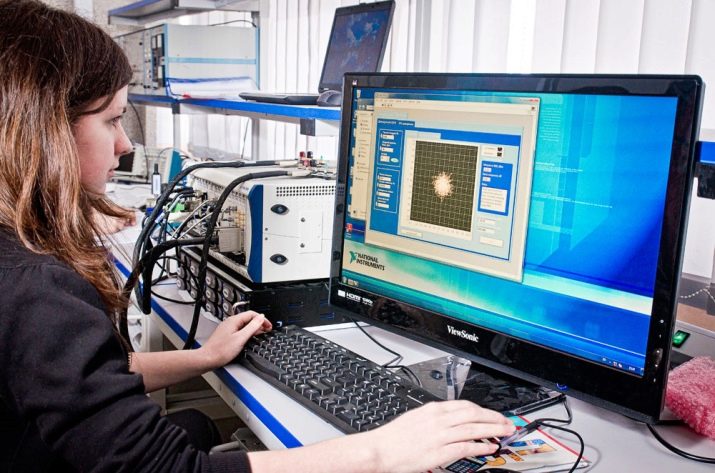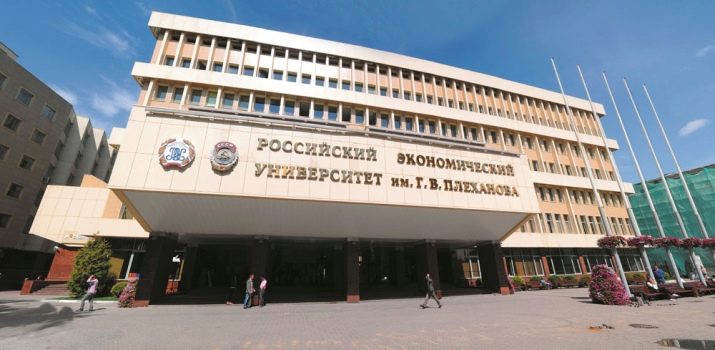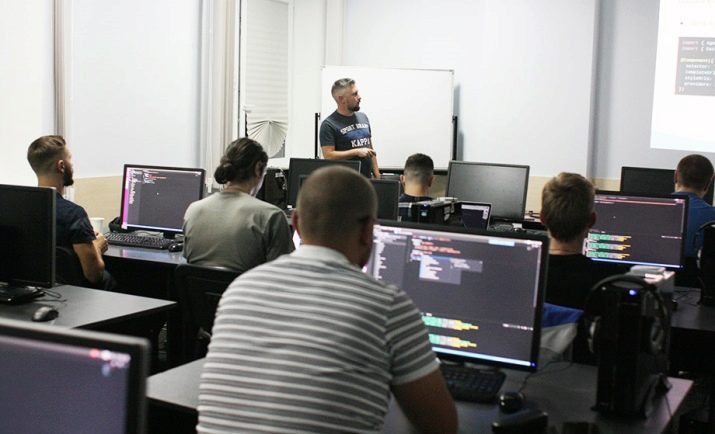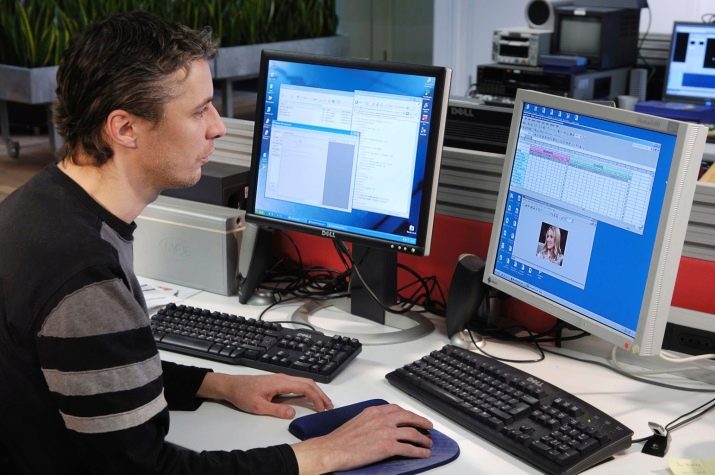All about Applied Informatics

The intensively developing applied informatics is the way to the future. Its relevance is undeniable, and its horizons are endless. Students with a penchant for this type of activity, who entered the relevant university, are guaranteed to receive bonuses in the form of real development prospects, interesting work and high earnings.

What is this profession?
Applied informatics is a rather complex, but extremely promising area of study and activity, since it directly concerns the issues of introducing innovative developments into real life.... And the topic of innovation for our country is extremely relevant today, and therefore it is intensively supported at the state level. Therefore, in order to obtain a relevant profession, it is worth studying - a promising specialty.
At today's level, applied informatics is the science of methods and operations of storing, collecting, transmitting and processing information using electronic computers. The term Informatik was introduced into scientific use by the German specialist K. Steinbuch back in 1957.
Computer science is divided into three parts.
- Theoretical. Its subject of research is information processes, and the goal is to create tools for working with information. This includes: the concept of coding, theory of algorithms, and programming languages.
- Natural, studying information processing procedures in the human brain, society and nature.
- Applied science is represented by theoretical materials of information and communication technologies, embodied in real activities, which are aimed at solving practical problems. The applied direction includes many areas, among which, for example, aspects related to artificial intelligence, the structure of a personal computer and computer design, visualization and graphics, network security and cryptography, distributed computing, databases and software engineering. This versatility and flexibility make it a versatile and extremely promising line of business, and therefore well paid. In other words, the future belongs to this direction, since without it it is not possible to solve practical problems in many spheres of life.

What do the specialists do?
Specialists in this area are employed in many areas, for example:
- in economics - materials are analyzed for their subsequent classification;
- in education - improve and support learning processes;
- in design - form auxiliary graphic programs and graphic editors;
- in jurisprudence - they create special software tools for quick and effective work;
- in sociology, they study society by working with huge databases;
- in chemistry and physics - they create and maintain special programs that provide modeling of various processes.
In other words, an employee with the appropriate qualifications can be in demand in many areas of human activity, and therefore has an advantage over other candidates and undoubted prospects for many years to come.

Features of training
The main task of training in this direction is to obtain relevant knowledge in such areas as:
- effective application of information technologies and systems in operational, design and technological, analytical, organizational and managerial and in many other areas of human activity;
- carrying out scientific research in order to improve the development of innovative information technologies;
- improving the modeling of various objects and processes in order to solve specific practical problems;
- formation and implementation of innovative technological processes for the development of the latest special service forms and systems.
In other words, any employer in this case practically acquires graduate specialists with an extensive profile with excellent knowledge of computer systems and the basics of cybernetics. In some cases, such a specialist also has a related specialized education in the field of economics, management, and law. An employee with such a specialty can not only collect, analyze and organize the data obtained, but also prepare special complexes and software for solving urgent problems.

Universities
Choosing the right university is not an easy task. This science is more technical than humanitarian, and there are many educational institutions that train specialists in this profile. Usually these are specialized educational institutions with a technical focus. Nevertheless, this direction is often found in faculties in modern humanitarian institutes or universities of a wide profile, where students can graduate from a bachelor's, master's degree or become a specialist.
From the best educational institutions in this area of study, we recommend:
- Russian Economic Institute named after G.V. Plekhanov;
- Financial University under the Government of the Russian Federation;
- MEPhI;
- National Research Nuclear University;
- Institute of Information Technologies, Mechanics and Optics in St. Petersburg;
- Moscow Technical University of Communications;
- Moscow State Machine-Building University (MAMI);
- National Research University "MIET";
- Moscow Technical University of Communications and Informatics (MTUCI);
- Russian New University;
- Financial University under the Government of the Russian Federation.
You can master this profession in colleges or technical schools after the 9th grade. The main emphasis in teaching is on fundamental mathematics and computational sciences... These subjects occupy more than half of the entire educational cycle, the remaining time is devoted to general and humanitarian disciplines.

Exams
If you have made a firm decision to enter the Department of Applied Mathematics and Informatics, then you should take a number of specific steps - collect all the necessary documents (national passport, document confirming citizenship, education documents and medical certificates); submit the collected documents to the admissions office of the educational institution.
It is necessary to take the exam in three subjects with good results (Russian, physics and mathematics). This specialty requires perseverance, dedication, excellent inclinations and abilities in the field of physics, mathematics and programming.
The most common admission exams are:
- Russian language;
- mathematics is a specialized subject, at the choice of the university;
- physics - at the choice of the university;
- informatics and information and communication technologies (ICT) - at the choice of the university.

The timing
After graduating from 11 classes, the applicant can enroll in full-time education, the duration of which will be 4 years. By choosing the correspondence or evening option, you have to study for 5 years.
Disciplines
A bachelor's degree implies the study of many basic disciplines necessary for activities in various fields. This includes studying:
- data arrays;
- informatics and econometrics;
- special operating systems, environments and shells;
- discrete mathematics;
- IT and security;
- network economy;
- software engineering direction;
- systems theory;
- statistics.
During the training, the student is obliged to master and acquire skills:
- in modeling and improving applied and information processes;
- in the design of IS;
- in the processes associated with the use of IS (during implementation, configuration, operation);
- in teaching and consulting;
- in the assessment of operating environments, information technology and communications, as well as financial costs of projects related to automation and informatization;
- in writing annotations, abstracts, reports, publications in the main direction.
The basic aspects are studied on the course:
- higher and discrete mathematics;
- simplified physics course;
- programming, OOP;
- applied informatics;
- functional analysis;
- databases, foreign language;
- individual courses in programming languages;
- history of the Russian Federation, ecology, philosophy and physical culture.

In the first year of study, there is a somewhat complicated repetition of school programs with the solution of problems of increased complexity.
As a result, the student will learn to think quickly, creatively and logically, and to solve applied problems. Lack of training there is a shortage of practical training in universities, which is quite enough in colleges. The list of disciplines studied in technical schools is not much different. The terms of training are typical. The number of budget places is strictly regulated.
As you can see, the overwhelming majority of disciplines are in one way or another connected with the mathematical direction and informatics - sections on systems analysis, modeling, algorithms, optimization, databases. Plus, students master courses in the basics of entrepreneurship, management and marketing, accounting and auditing, physics, safety engineering, legal foundations of applied informatics.
The non-technical block of training provides courses in history, philosophy, foreign language and economics. It is compulsory in the program to undergo industrial and pre-diploma practice.
During the training, students receive the following knowledge and skills in the field:
- mathematics, physics and other disciplines;
- coding and object-oriented programming;
- theory of programming languages;
- ability to work with databases;
- foreign languages;
- the specifics of information technology in various spheres of work;
- research activities;
- algorithms for the development of modern technologies for calculating systems and services;
- modeling objects and processes for solving real practical problems.

In what areas and with whom can you work?
Within the profile under consideration, there are a lot of professions in demand today, and therefore the likelihood of finding a good job is high.
A literate graduate can go to work:
- analyst - a specialist in the collection and processing of information;
- a programmer - to develop programs;
- 1C-specialist in setting up and maintaining the 1C Enterprise program;
- IT-manager - a specialist in strategic planning, technological improvement, team management;
- testing engineer - checking the correctness of the execution of programs, identifying errors in the work;
- database operator - database maintenance;
- a system administrator - a specialist in the maintenance of local networks - installing and updating software (applied and system), repairing computer equipment, training employees in the correct operation of equipment;
- information security expert;
- web programmer - development of online resources, websites, portals (must own both the client and server parts of web programming);
- graphic designer - a specialist in creating a harmonious visual and communicative environment;
- an entrepreneur.

It is important to choose the option that provides a number of possible directions in future work. The possibilities of applied informatics are wide.
Let's consider an example the topic of applied informatics in economics, which opens not only the problems of economic theory and practice, but also the possibilities of modeling many processes. The main objects of activity here are professionally oriented information systems. We are talking about the spheres: banking, customs or insurance regulation, administrative management, information economic processes (software development in the latest areas of the economy, preparation of special programs complexes).
The implementation of a detailed analysis of the collected information, on the basis of which expert opinions are made, which serve as the basis for the development of specific management decisions, does not stand aside. This refers to an informatics economist who has fundamental theoretical knowledge and practical skills acquired within the walls of the university. These are the following areas:
- databases,
- business fundamentals;
- high-level methods of programming and computer science;
- computing systems,
- telecommunications and networks;
- design of general and intelligent information systems;
- management, economic analysis, accounting and auditing.

Employment and salary
As you can see, the area under consideration provides a wide range of professions that are implemented today in many organizations and enterprises. For example, in the IT field, there are many companies and their branches for the development of software systems, the implementation and operation of ICT in various fields. Advanced professionals with strong management skills can quickly reach the position of project manager. There are a lot of examples, so the issue of employment is guaranteed not to be a problem.
The income of young professionals usually starts at 25,000 rubles. It is difficult to establish the maximum values, everything is decided by the degree of qualification, the specifics of the position, the direction of work and the specific project. Specialists with 3 years of work experience may well earn up to 100,000 rubles (especially programmers who own the 1C program).Often, such specialists work remotely - the Internet provides truly enormous opportunities for this.
If you wish, you can continue your studies in the magistracy, that is, significantly expand your horizons and opportunities. Master's courses allow you to gain real experience, get acquainted with the latest processes and advances in industries. This degree opens the way for self-realization in the fields of scientific research.
Today in this area there are many professional competitions, competitions and fairs, which are usually organized by the largest companies. By participating in them, it is quite possible to prove yourself worthy and thereby open up new opportunities for obtaining, for example, a position with a high salary and a comfortable workplace.
Moreover, the received diploma of a participant in such events can open up new ways of development abroad, where a lot of such events are also held.









